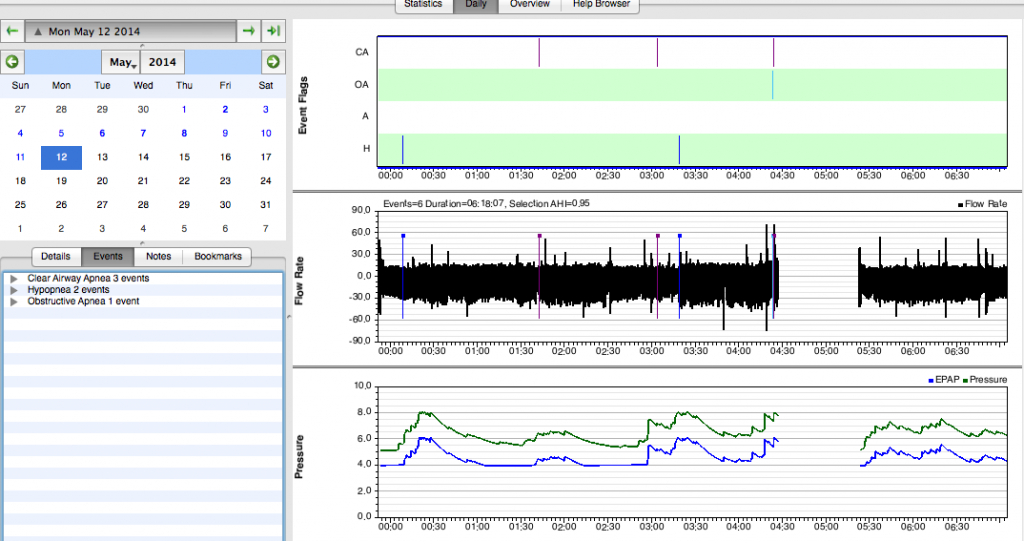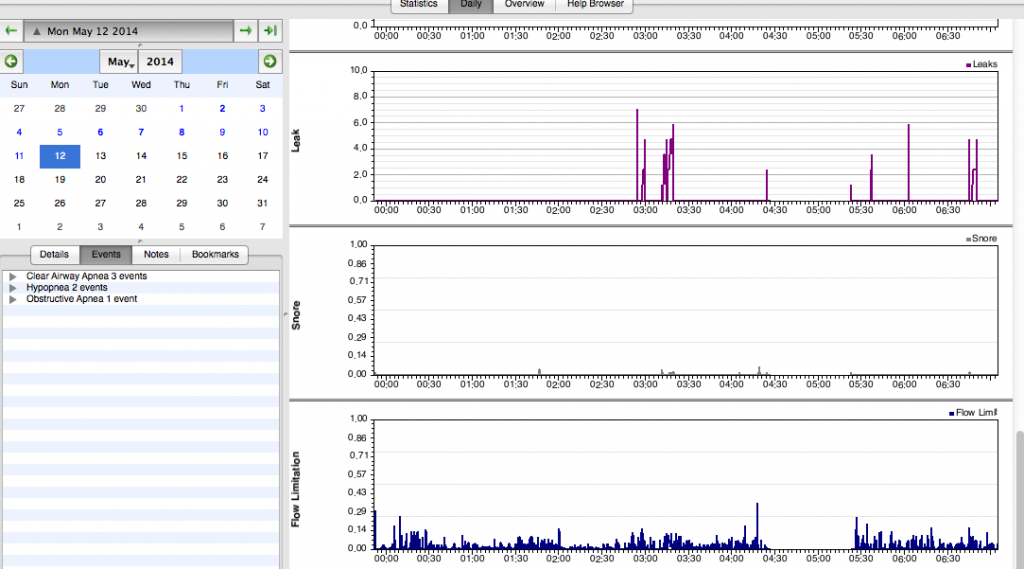wearysoul wrote:
I started the CBT-I on May 6 after keeping a sleep log for several weeks.
Are you still keeping the sleep log? And if so, what goes in to it?
So I'm into my second week of following a sleep restriction schedule. My practitioner told me the first week would be hard and the second maybe a little easier. The first week WAS hard, but the second week has been even harder.
Yep. Been there done that. But---and it's an important but---it will get easier with time
if you stick with the sleep restricted schedule. Also to make you feel a bit better, when I started my CBT-I, my sleep was so out of whack and so fragmented that I started out with a
six hour time in bed window. Bedtime was 1:30 and wake up was 7:30. So you can be happy that the sleep restricted schedule isn't even more restrictive.
I struggle fiercely in the late afternoon and find myself fighting sleep terribly, especially if I sit down.
Been there done that too.
I feel as though my brain is determined to shut down no matter what I do. Today I actually fell asleep sitting up straight on the couch--head practically in my lap--and I finally decided that there was no point in torturing myself, especially since I had 6 ½ more hours to go before bedtime. So I took a 45 minute nap.
Was the nap WITH the PAP? It's critically important that if you're going to cheat that you at least cheat with the PAP. But it's better if you can NOT get into the habit of cheating. The problem with that 45 minute nap is that it's going to make you a lot more prone to waking up and not getting back to sleep again tonight.
After my practitioner reviewed my sleep log on May 6, she concluded that I get an average of 6.5 hours of sleep every 24 hours. Since I had been getting up after my early morning awakenings and staying up for an hour or more, she wanted to reduce that "awake" time to ½ hour. So she gave me a sleep window of 7 hours. It's 12 midnight to 7 am.
All a reasonable plan. And by setting the goal at 6.5 hours of sleep in a 7 hour sleep window, your practitioner is aiming to get your sleep efficiency up to around 93%. But you do need to be reasonable in your expectations: It's likely going to take a few months of work to get to this goal.
At this point, I seem to be waking a little more toward 5:30 am
That's progress. Would you say that the sleep between midnight and the 5:30 wake is relatively continuous or not?
and if I stay up for 30 minutes, it's getting close to 6 am and I realize I'm not going to get back to sleep--even if I go back to bed. So on some mornings I haven't gone back. And the result is that I get only about 5 ½ hours sleep. That's less than the average of 6 ½ hours of fragmented sleep I used to get. I guess that's why I feel so much more overwhelmed by sleepiness than before I started the CBT-I.
The 5 1/2 hours of sleep is part of it. But part of it is also that the CBT-I is hard work. It's hard trying to stay awake when you
know you are short on sleep. It's also hard to force yourself out of bed at wake up time when you feel like you've finally just settled down into some sleep. (That was my big problem because my insomnia was manifesting itself as severe bedtime insomnia combined with multiple (short) wakes all night long.)
My practitioner hasn't really given me any further direction on how to reduce the early morning awakenings. I go back to see her on May 20.
She probably won't give you many more specific instructions on what to do to reduce the early morning wakes. But has she explained how the sleep restricted schedule is supposed to help?
In case she hasn't, this is what my PA told me back in Dec. 2010 at the start of the First War on Insomnia: By restricting the time in bed the idea is to consolidate your sleep cycles and make your body and mind decide and learn how to NOT waste time in bed (or time in the sleep window) waking up and NOT going back to sleep. But to make this work you really do have to try very hard to NOT consciously fall asleep during the non-sleep time. The idea is to train the body
and mind to understand that
time in bed = time to be asleep. In the short run you eventually get tired and sleepy enough to not care so much when you wind up waking up and instead of waking up enough to worry about the wake, at that point your body starts to overrule the mind and you start learning how to fall back asleep more quickly. You might never eliminate
all the night time wakes, but the goal is to make them both few enough and short enough where you'll get a full sleep cycle (or two) in between the wakes AND you don't remember the wakes AND the wakes not really disturbing your overall sleep because they are both few in number and short in length.
Yes, as mentioned above, you're right about the 7 hour sleep window. And the gap is the time I got up and went downstairs and sat on the couch and looked at my iPad.
A tip: It would be a good idea to try to NOT use the iPAP or your smart phone or a computer or the TV during your sleep window of 12:00 to 7:00am. The screens emit blue light which messes with the melatonin cycle. In other words, getting on the iPAP may make you more AWAKE and less likely to start feeling sleepy when you are out of bed.
Yes, I am stirring around and restless during the period of arousals. It happened this morning. I'm partially awake and fade in and out for a while. Just in between. And then the real awakening occurs.
Is there morning light coming in your bedroom windows around the time of the wake?
I'm asking because I'm wondering if there is also a sleep phase problem. Out of pure curiosity: Do you think you could function long term with a seven hour sleep window that runs from 10:30 pm to 5:30 AM? In other words, would you be able to go to sleep by 10:30 on most nights without any additional medication if you were getting up at 5:30 every single day, including your days off?
As I mentioned above, when I wake up and know I'm not going back to sleep easily
When you first become aware of the fact that you are AWAKE what do you do? I mean when you are still in bed---what's the first thing you think about or the first thing you do?
Do you immediately look at the clock? Do you start worrying about the fact that you are awake again? Do you start trying to figure out
why you are awake?
If those are the kinds of things that start going through your mind when you first become aware of the fact that you are awake, then you are likely making the wake last longer and you are making it harder to get back to sleep.
Here's something to keep in mind: Even people with perfectly normal sleep patterns (no OSA and no insomnia) typically wake up a few times each night---most often right at the end of a REM cycle. The thing is non-insomniacs respond very differently to the wake than insomniacs do: When non-insomniacs wake up, they typically determine that there's nothing external that needs their attention like a crying baby or some other night time emergency. And after quickly determining that there's no reason they need to be awake, they turn over, snuggle back into the covers, and go right back asleep. In the morning, they probably won't even remember the wake because the wake lasted less than 5 minutes. (In order to remember a wake in the morning, it typically needs to be at least 5 minutes long.)
Contrast that to what many insomniacs do when they find themselves awake: The first thing they do is think
Crap, I'm awake again.. And they typically look at the clock immediately after waking up. And after looking at the clock they start focusing on
worrying about the time:
How long have I slept since the last wake? How long is it before the alarm goes off? And they start worrying about why they woke up in the first place and whether they're going to get back to sleep or not. And all of that
worrying tends to make the wake last longer AND makes it much harder to get back to sleep.
I get up and go downstairs and sit on the couch. Listen to my iPod or look at my iPad. Or just sit--but I don't do that too much because I need something to distract me from how I awful I feel.
You are right: You need to not focus on how miserable you feel. At the same time, if you are not ready to just get up (and shift the whole sleep schedule forward by about 90 minutes), you need to do something that is sleep inducing. Listening to quiet music on your iPod is a good activity. Reading a real book or a magazine or newspaper or playing a game of solitaire with real cards would be better than looking at the iPad since the iPad emits blue light.
So far, I haven't learned any other strategies to help me get back to sleep more quickly after an early morning wake. I have only the shorter window allowed by my practitioner for the wake time. Maybe she will give me something new at the next appointment.
Some additional things that might help:
- Turn the clock around so you can't see it when you first wake up. And try not to obsess about finding out the time when you do wake up at night.
- When you first become aware of the fact that you are awake, pay attention to your physical comfort rather than wondering or worrying about your (lack) of sleep. Does the pillow need fluffed or squashed. Covers need thrown off or pulled up? If there's nothing in particular that seems wrong, assume that there really is nothing wrong and give yourself permission to just turn over and (try to) go back to sleep. If you can't get back to sleep after a bit, you can always get up ..
- Try to not micro analyze the wakes, particularly during the night. Most likely there really is no particular reason why you are waking up, other than you're in the habit of waking up (and then worrying about the fact that you are awake).












